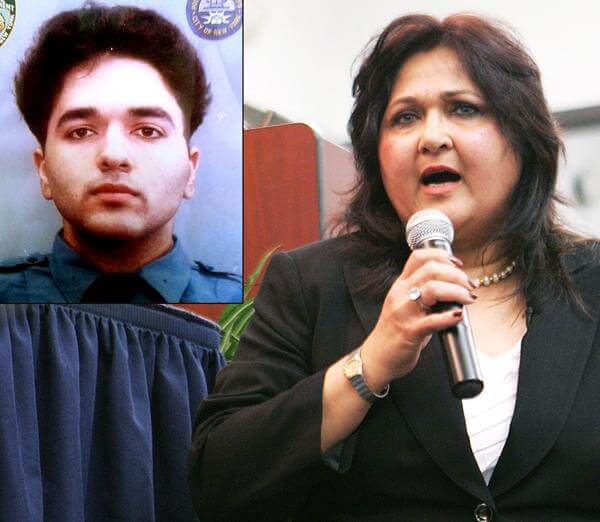By Joe Anuta
After the 2001 terrorist attacks on the World Trade Center, all of the victims’ families grieved, but some also saw a vision of the post-9/11 world they wanted to live in.
Some families with similar outlooks banded together to form activist groups. Two of those groups serve as an example of the different ways families reacted to the tragedy, and how they are working in different ways to prevent another attack.
One group promotes peace as the way to counteract terrorism. Another thinks stricter immigration laws will help prevent terrorists from infiltrating American soil and launching a homegrown attack.
9/11 Families for Peaceful Tomorrows, was formed in 2002 when a cadre of family members who lost loved-ones in the attacks came together to urge former President George W. Bush to start a fund for Afghanistan families.
Some members of the newly formed group had visited Afghanistan after the start of Operation Enduring Freedom, the American bombing campaign launched in response to the World Trade Center attacks. The members spoke to widows whose husbands were killed. They also spoke to Afghani families who were too poor to rebuild their homes destroyed by bombs.
The group has expressed its belief that war only breeds more violence and consequently has made the country less safe. It has since called on the federal government and elected officials to pursue nonviolent means to combat terrorism.
The group also seeks to education the public about the loss of civil liberties connected with the war on terror, and to combat racial and ethnic discrimination.
Talat Hamdani lost her son Salman, who grew up in Bayside, in the attacks. As a registered EMT, he had raced into the city once he saw the smoking towers and died attempting to save the lives at Ground Zero.
Hamdani said she joined the group because she believes violence only breeds more violence and that killing is not the answer, according to Hamdani.
“I’m a person who does not believe in revenge,” she said. “Waging a war is not going to stop terrorism.”
Another group, called 9/11 Families for a Secure America, has also advocated for ways to prevent terrorism, but took a vastly different approach.
The group was formed after Peter Gadiel, who is now its president, lost his son James in the terrorist attacks.
Gadiel said that after a period of shock, he began to think about how the perpetrators were able to kill so many people
He wondered how the pilots of the plane had been able to move to America and get licenses and jobs while concurrently plotting the 9/11 attacks.
“I wanted to find out exactly why it was our borders were opened up so these killers could come in here like this,” said Gadiel. “And function so freely in our society while they rehearsed and financed and carried out the attacks.”
After investigating the nations immigration laws, Gadiel said he found they enforcement was woefully inadequate.
He drafted an essay and showed it to some of the other families, who decided to unite as a group.
Wilton Sekzer, a retired police officer, lives in Sunnyside. His son Jason was killed in the attacks.
Sekzer is a founding member of the group, and thinks that the ease with which non citzens can cross into the country poses a serious treat to national security.
“If you understand that it can happen, if you even say to yourself: ‘yes, the possibility exists,’ then you can’t be complacent,” Sekzer said in a video put out by the group. “You have to do whatever you can to keep it from happening again.”
Several members of the group have toured the border between Mexico and the United States, and others have spoken on news programs.
An ongoing point the members make is the government’s failure to enforce some of the recommendations of the 9/11 Commission, which was formed to advise the country how to prevent a future terror attack, according to Ed Kowalski, treasurer for the group.
Both groups seek to prevent a future attack, and 10 years after 9/11, their ranks and voices have grown even stronger.
Reach reporter Joe Anuta by e-mail at januta@cnglocal.com or by phone at 718-260-4566.



































